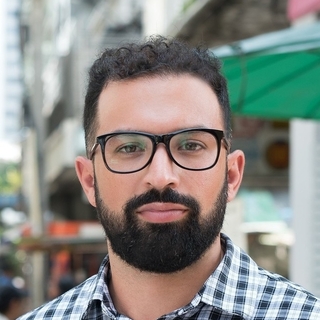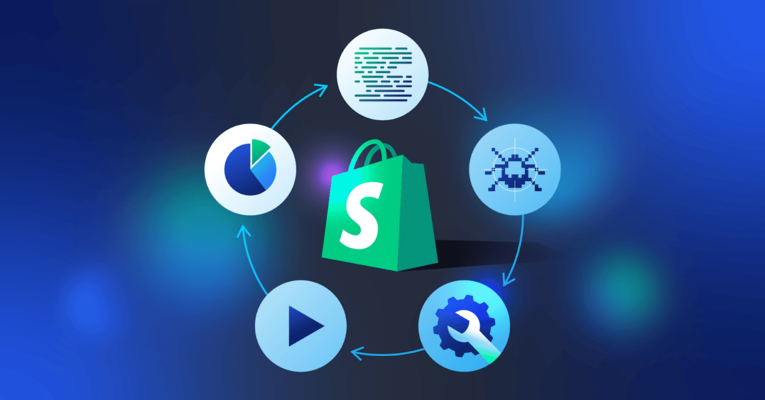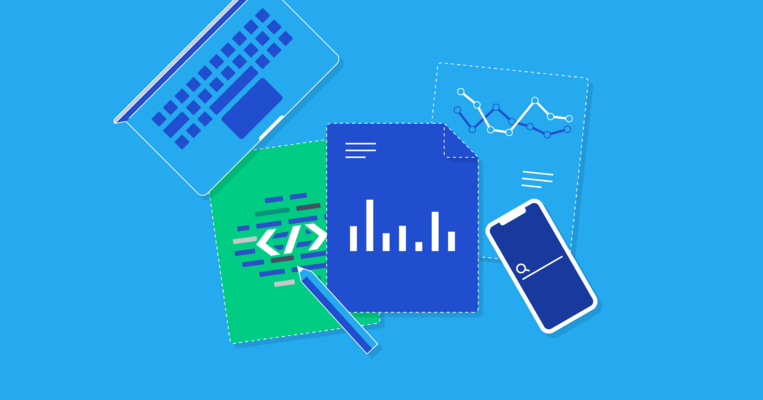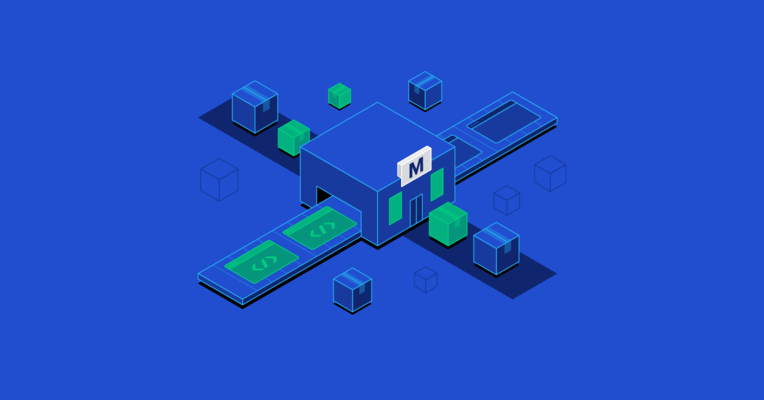Demand for E-commerce Developers Continues to Expand
With the global e-commerce market forecast to surpass $214 trillion by 2033, competition for qualified e-commerce developers is fiercer than ever. From startups seeking to disrupt industries to enterprises defending market share, companies must attract talented developers to maintain high-quality e-commerce sites—otherwise, they risk losing customers to competitors that offer a superior user experience (UX).
E-commerce developers are vital to this effort. They build and optimize digital storefronts, integrating them with third-party APIs and plugins to enhance functionality. To hire successfully, companies must navigate a broad technological landscape: Well-established e-commerce platforms include Shopify, Magento, WooCommerce, and BigCommerce, and each offers unique architectures and ecosystems. These platforms don’t exist in a vacuum—developers must stay current with broader web and mobile app development trends to optimize back-end codebases and keep front-end designs relevant and intuitive for customers.
This guide explores how to recognize top-tier talent, understand the nuances of e-commerce website development, write a compelling job description, and compile an effective list of interview questions. Whether you’re launching a new e-commerce site or scaling an existing one, this information will help you hire e-commerce developers who align with your business needs and project requirements.
What Attributes Distinguish Quality E-commerce Developers From Others?
Given the proliferation of business-friendly e-commerce platforms that handle the bulk of the necessary software engineering, developers can make a career of successfully creating and launching online stores without custom programming, even for front-end design tweaks. Yet top e-commerce developers are comfortable with more difficult and technical situations where custom code is needed, such as complex front-end logic and workflows, automated integration with business data sources (including ERP and CRM systems), and scalability beyond prototypes and small- and medium-sized business (SMB) sales volumes.
Quality e-commerce web developers can handle any platform, though they may prefer to specialize. Either way, their ability to customize front-end code will always depend on up-to-date knowledge of HTML, CSS, and JavaScript. Platform-specific templating languages are often needed, too—for example, Shopify developers will need to know Liquid unless a project provides a separate front end. On the back end, customizing core features of Shopify requires Ruby on Rails skills, whereas WooCommerce and Magento are both built using PHP. BigCommerce, being closed-source, can’t be customized in the same way; instead, it provides an API for integration. Back-end integration via APIs (on any platform) requires proficiency in other languages such as Python and Java.
Since e-commerce site performance is critical, top-tier candidates will know how to analyze a site’s tech stack to troubleshoot bottlenecks. A 2024 study found that 53% of users exited slow sites after viewing just one page, underscoring the importance of speed and optimization. Addressing these challenges requires a skill set that spans database tuning, content delivery network (CDN) optimization, and strategic architectural adjustments.
Experienced e-commerce developers also understand optimization in a business sense. They know how to create a smooth UX for cart management and checkout and implement A/B testing to improve conversion rates in collaboration with marketing and design colleagues.
Finally, having users stay on-site long enough to make a purchase is important, but potential customers must find the site in the first place. Hence, top e-commerce developers are also search engine optimization (SEO) experts. They stay on top of Google’s algorithm changes and use best practices, such as semantic HTML and well-structured data, to boost rankings and traffic.
How Can You Identify the Ideal E-commerce Developers for You?
Selecting the ideal software developer for your business depends on the needs of your e-commerce project and the structure of your development team. Before sourcing candidates, ensure that your project scope and talent gaps are clearly defined. Are you building a new online store? Customizing your checkout experience to make it more user-friendly? Migrating to a different e-commerce platform or front-end framework? Integrating a new payment gateway? Synchronizing your mobile and web offerings to bring continuity to your customer experience? The required skill profile can vary considerably depending on your goals.
The project requirements and team structure can also help determine the most appropriate developer role. Hiring a full-stack developer can provide end-to-end coverage, from user interface design to back-end integration, and is often the best choice if you lack other developers. However, for larger teams with a full backlog of front-end work, a specialist makes more sense—for example, a Shopify or WooCommerce expert could be more cost-effective at leveraging preexisting themes and plugins while also writing custom code when needed.
Look for candidates whose portfolios show e-commerce stores that are similar in size, scope, and audience to your project—and ensure that their contributions to these efforts align with your needs. Testimonials and customer feedback can help validate their expertise.
Junior developers may offer more cost-effective pricing, but they are best suited for companies with strong in-house technical oversight. Mid-level developers with three to five years of experience bring more autonomy and faster onboarding. Senior developers or e-commerce experts contribute strategic value, mentor junior staff, and apply best practices to complex customizations and performance optimizations for large e-commerce systems. In roles requiring these abilities, experts are well worth the increased hourly rates.
How to Write an E-commerce Developer Job Description for Your Project
Attracting the best e-commerce developer for your project starts with a detailed job description tailored to the particular role you have in mind. It can help to mix and match appropriate job description templates—for example:
- If your project involves Magento, you may need a specialist who can also address SQL challenges.
- If you are working with WooCommerce or another WordPress-based platform, a WordPress template may be appropriate.
- If your store will be primarily web-based but no platform has been selected, a web developer template may work best.
- If you aim to standardize your customer experience on a mobile app, consider adapting an Android or iOS template.
In the job posting title or subheading, indicate whether the role is full-time, part-time, in-house, or remote, and, if applicable, name the e-commerce platform (or platforms) involved in the project. Then, begin the description with a concise overview of your company, the role and scale of your e-commerce store within it, the project type (such as greenfield, optimization, or migration), and the anticipated timeline. Be clear about the role’s scope and relationship to other roles—for example, do they need experience with graphics software, web design, and UX design, or are those responsibilities handled elsewhere in the company?
Precision helps filter out underqualified applicants. Clearly define essential technical skills—including the primary e-commerce platform, programming languages, frameworks, and libraries—as well as specific overall tasks (e.g., integrating a particular ERP system) and workflows.
Avoid vague generalizations about soft skills like problem-solving, project management, and communication skills. If these traits are important, explain why—for example, highlight independent problem-solving skills if you’re hiring a lone full-stack developer or communication skills if you expect them to liaise with stakeholders or a larger development team.
What Are the Most Important E-commerce Developer Interview Questions?
To interview e-commerce developer candidates fruitfully, ask questions about the technologies listed in the job description and tailor them to the role and project. For example, a Magento project should focus on Magento questions, but if your project faces database scaling issues, MySQL questions should also be included. For any role with front-end responsibilities, questions on HTML, CSS, and JavaScript will be valuable. Regardless of the mix, the following e-commerce questions will allow you to listen for real-world experience and its relevance to your project.
Strong answers will cover both front-end and back-end strategies. On the front end, this means techniques like lazy image loading, asynchronous JavaScript loading, and minimizing HTTP requests through JS and CSS bundling and minification. On the back end, caching via CDNs, browsers, and servers like Varnish or Redis makes sense, as do database optimization techniques such as query indexing and denormalization for read-heavy operations. Referencing tools such as Google Lighthouse to tie these efforts to business KPIs also demonstrates a high-quality answer.
Experienced candidates should understand authentication, error handling, API versioning, and security, and be able to describe specific APIs they’ve integrated (like Stripe, PayPal, Klarna, or Shopify Payments). They should explain how they handled callback events (webhooks), retries, idempotency keys, and Payment Card Industry (PCI) compliance concerns. A good answer will also touch on how they handled sensitive data according to industry best practices, such as avoiding the storage of raw credit card information and using tokenization. Even if candidates primarily use plugins for these tasks, they should understand what’s happening behind the scenes for scaling and troubleshooting purposes.
What is your approach to ensuring a seamless user experience across different devices and browsers?
A strong candidate will approach cross-platform UX by combining responsive design, progressive enhancement, and cross-browser testing. They should mention using CSS media queries, flexible layouts (e.g., CSS Grid or Flexbox), and fluid typography and images to support various screen sizes. Good engineers know that testing across Chrome, Safari, Firefox, Edge, and mobile browsers is impractical without automation tools like BrowserStack or Playwright. Ideal responses will also include the use of real-user monitoring (RUM) tools (e.g., Google Analytics or New Relic) to assess device-specific performance and bounce rates.
What would you consider from a functionality and UX perspective when integrating a third-party payment gateway while maintaining full PCI compliance?
Experienced candidates know how to balance secure back-end integration with seamless front-end workflows. A standout response will cover tokenization of card data, redirect-based versus embedded checkouts, and scope-reducing strategies that avoid handling raw card details. Candidates should also mention UX aspects such as autofill support, unobtrusive form validation with helpful error messages, and minimizing required fields, which are especially important on mobile.
Why Do Companies Hire E-commerce Developers?
In a market where site performance, seamless checkout experiences, and integrated marketing features directly impact revenue, hiring e-commerce developers becomes a strategic investment. The best developers help businesses capture more customers and optimize every stage of the buyer journey.
Whether they are full-stack generalists or specialists in platforms like Shopify, skilled e-commerce developers don’t just build websites; they develop e-commerce solutions that align with business goals and drive conversions. With the proper hiring process, job description, and interview strategy, companies can find dedicated e-commerce developers who will support their long-term growth in an increasingly online economy.



























